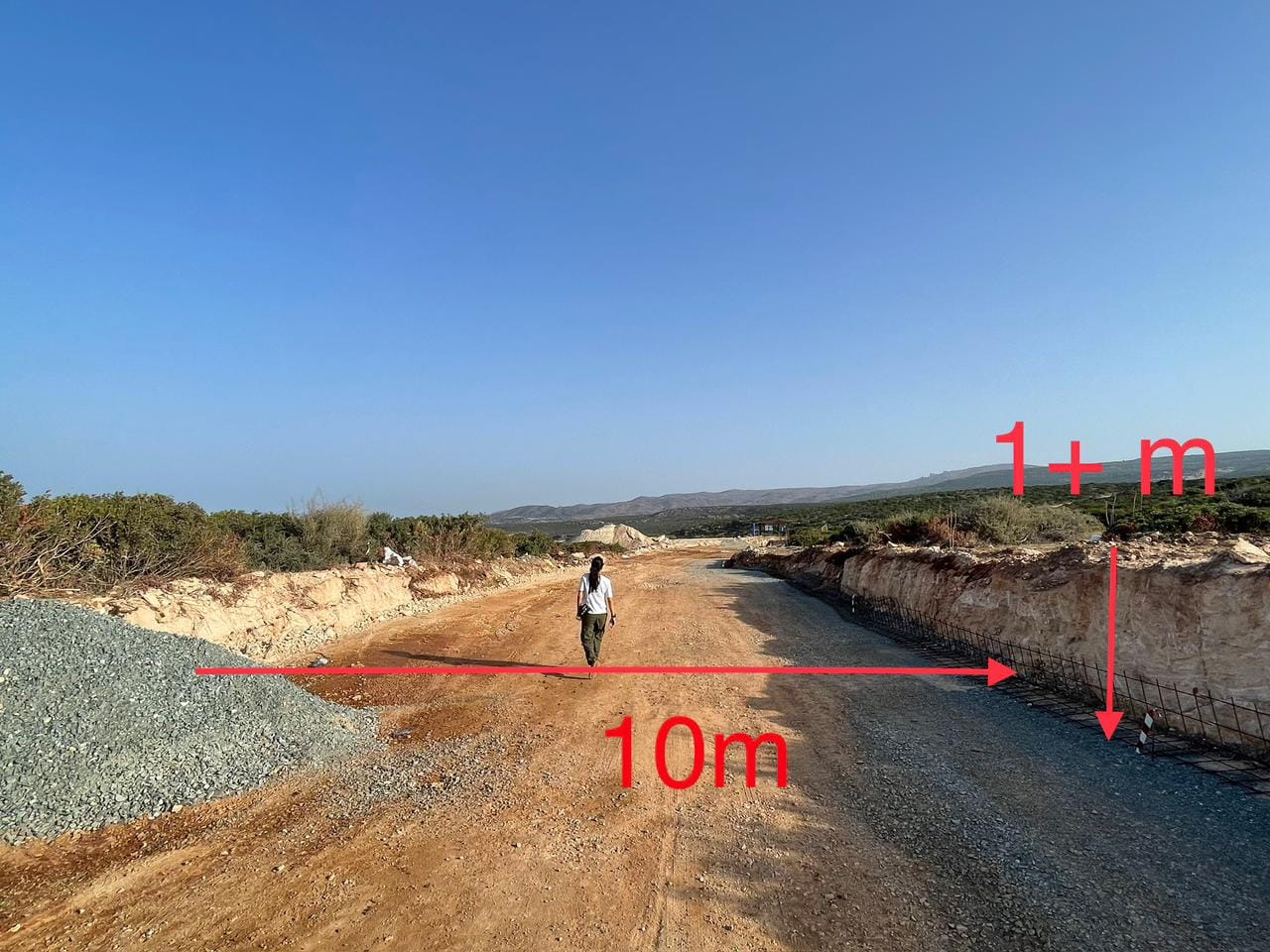Environmental organisations sought to hold authorities, including the agriculture and environment minister, to a strict accounting over the Akamas roadworks on Wednesday and demanded a substantive response.
Speaking on CyBC, Agriculture Minister Petros Xenophontos, assured that probing would continue beyond the administrative investigation just concluded, and that responsibilities would be assigned, but stopped short of announcing the need for a criminal investigation.
“The administrative investigation showed that the environmentalists’ assertions were just,” the minister said.
However, the investigation had set out to answer two questions within its scope, which it did, he said. The first is whether the special environmental assessment (SEA) on the Akamas road works was handed over to the project surveyors to be included in the final construction plans – which was done “according to their understanding”, Xenophontos said.
The second was whether these were officially presented before the ad hoc environmental advisory committee, which was not properly done, the minister admitted.
He added that further investigation is needed into the actions of the forestry department, for signing off on the final plans, and the environment department, on whether it was remiss in explaining the plans to the ad hoc committee members.
Klitos Papastylianou, coordinator of the Initiative for the Protection of Natural Coasts speaking on the same programme, however, did not mince words, stating that although the SEA findings were given to the project’s surveyors, they were not in fact embodied in the final plans – and this is the crux of the matter.
The fact that the plans were not formally presented before the ad hoc committee was problematic but secondary, Papastylianou told the CyBC.
He took issue with the minister framing the problem as one of a lost-in-translation lack of technical understanding by ad hoc committee members.
“We perfectly understood,” Papastylianou said, claiming that the timeframe of approval had coincided with access to the plans, thereby precluding any meaningful review by the ad hoc committee.
“The administrative investigation’s report is patchy and incomplete with factual omissions,” Papstylianou charged.
He urged the minister to review for himself the timing and the documents, in particular discrepancies with the legally binding terms, and “the signature” under the greenlighted final plans.
Speaking to the Cyprus Mail a spokesman from environmental NGO Terra Cypria noted that the finger points clearly to the forestry and not the environment department, who did provide access to the plans.
The two issues on which consensus seems to have emerged between the lines of mystification and blame-shifting, are that the contractor was indeed simply following approved orders and is not to blame; and that the ecological damage sustained as a result of the debacle is large, and urgently requires restoration.
Concrete structures must be demolished; service roads must be closed; deep excavations filled in; bridges re-evaluated and also reviewed for demolition.
Moreover, heavy vehicles and machinery brought into the area, of the type used in urban construction, must be removed, as well as building debris.
“The situation [in Akamas] is surreal. The whole area has been turned into a huge urban-style construction site. Akamas is not an urban national park like Athalassa forest. It is a [natural and protected] national park,” head of the Green party, George Perdikis, told the CyBC.
According to Perdikis the silver lining may be that momentum now exists, after the fiasco, to reconsider aspects of the plan, in particular, the provision allowing for private vehicle traffic into the park.
While access through the north entrance to Fontana Amorosa has been designared for restricted entry with small visitor buses, access through the south entrance has not been similarly designated.
“Normally access ought to have been created through the villages, so as to genuinely benefit them. Peyia [where road access currently runs] did not need further development, the villages did,” however, this is now moot, Perdikis noted.
The time has come for the current administration to show its true colours and whether it will “cut the umbilical cord” or continue its predecessors’ policies on Akamas, he said.
“If they do, they will find us in opposition,” he vowed.
The minister and the ad hoc committee are to visit the area jointly on December 16 to review the damages and devise an action plan for restoration.







Click here to change your cookie preferences